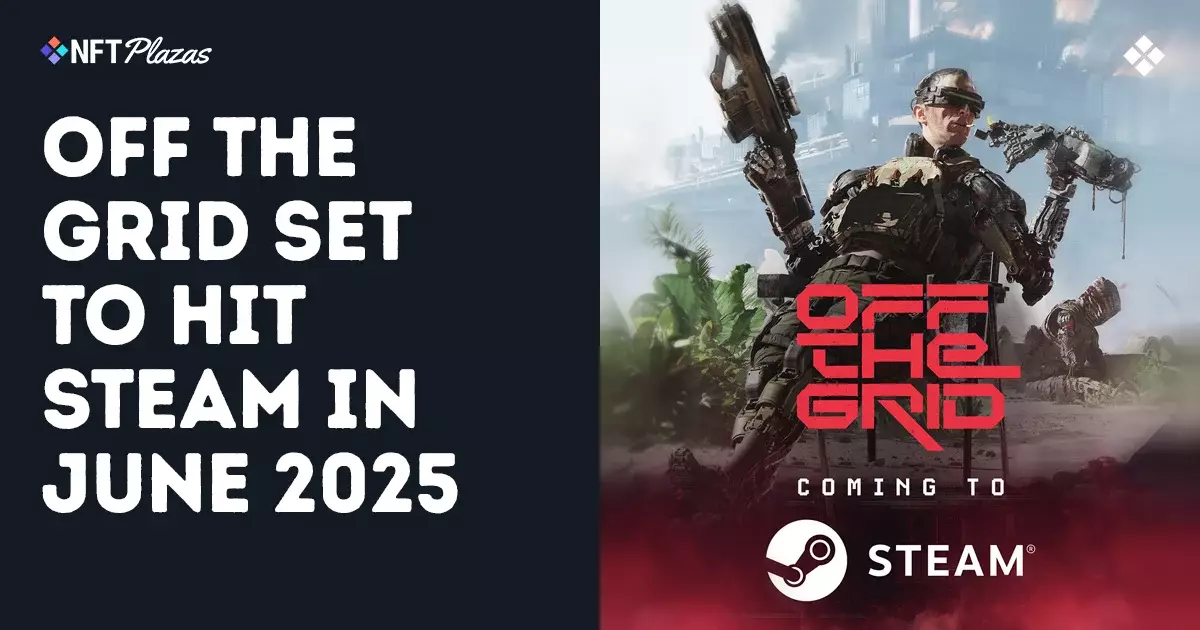The world of gaming is on the verge of an unprecedented transformation, particularly driven by the rising popularity of non-fungible tokens (NFTs) and blockchain technology. Among the forefront drivers of this evolution is the upcoming battle royale game, Off The Grid, which has made headlines for its anticipated launch on Steam in June 2025. This announcement not only reflects the game’s soaring popularity but also hints at a larger trend wherein mainstream platforms are beginning to embrace what was once considered niche or controversial—namely, the highly debated marriage of gaming and blockchain.
This will be a monumental moment; Off The Grid is poised to tap into Steam’s extensive user base, which exceeds 130 million, allowing a wealth of new players to discover the game. The skepticism surrounding NFTs in gaming had persisted for some time, as traditional gamers raised concerns about pay-to-win models and the environmental impact of blockchain technology. However, the recent trend towards greater acceptance signals a potential renaissance for how we engage with digital assets in video games.
Off The Grid: A Community-Centric Approach
The creators at Gunzilla Games appear to recognize the power of community in shaping a gaming experience. Their commitment to responsiveness—exemplified through ongoing updates based on player feedback—undoubtedly instills confidence. Vlad Korolov, the CEO, articulated this sentiment well, emphasizing that the Steam launch is a culmination of collaborative efforts with the player community. Such transparency in development not only garners loyalty but also invites new players into the fold, fostering a sense of belonging and purpose.
Imagine a gaming ecosystem where players not only participate but have a say in the direction of the experience. This is essential as the gaming market becomes increasingly saturated. As the NFT economy becomes more intertwined with gameplay, players are positioned not just as consumers but as stakeholders in the very world they inhabit.
Outlook on Accessibility and Inclusivity
Critics have labeled blockchain gaming as elitist, an exclusive club that prioritizes wealth over skill. Yet, Off The Grid dares to challenge this perception by offering a robust free-to-play model while enabling in-game purchases through an on-chain item economy. With over 15 million registered users and a staggering half a million daily players, it raises questions around how NFT gaming can foster inclusivity.
While many NFT games have been maligned for high entry costs, Off The Grid appears to present a more reasonable approach. The potential for cross-play across multiple platforms facilitates accessibility, allowing more players to engage in a single, unified game environment. This equitable access could be vital in shifting the stigma associated with blockchain games, suggesting they might be more integrative than once thought.
Skepticism Towards Steam’s Gradual Shift
However, this growing acceptance is not without skepticism. The launch on Steam comes with questions regarding how fully the game will embrace its blockchain functions. Will players be able to utilize the NFT and token systems that are central to its economy? The looming uncertainty around this aspect raises concerns about whether this move signifies a genuine shift in Steam’s stance on Web3 gaming or merely a calculated response to market trends.
If the platform allows a full integration of NFTs, it could pave the way for other games and services to follow suit. But if it only partially embraces these features, it might signal a hesitance that hampers innovation. After all, a half-hearted implementation can alienate existing players who’ve traded real value in-game.
The Future of Gaming
The upcoming release of Off The Grid is more than a mere game launch; it embodies a burgeoning dialogue about the future of gaming and digital ownership. As it stands at the intersection of player engagement, community-driven development, and blockchain technology, it opens a door to a new era—one where players can truly feel invested in the spaces they occupy.
Anticipating a rebirth of gaming where blockchain and traditional elements intertwine taps into a deep vein of hope for a more democratic and collaborative future. And whether you are a seasoned player or a newcomer, this advancement signifies that we all have a stake in how our digital worlds evolve. The gaming landscape may never look the same again, inviting us to rethink how we share, trade, and, ultimately, play.


Leave a Reply